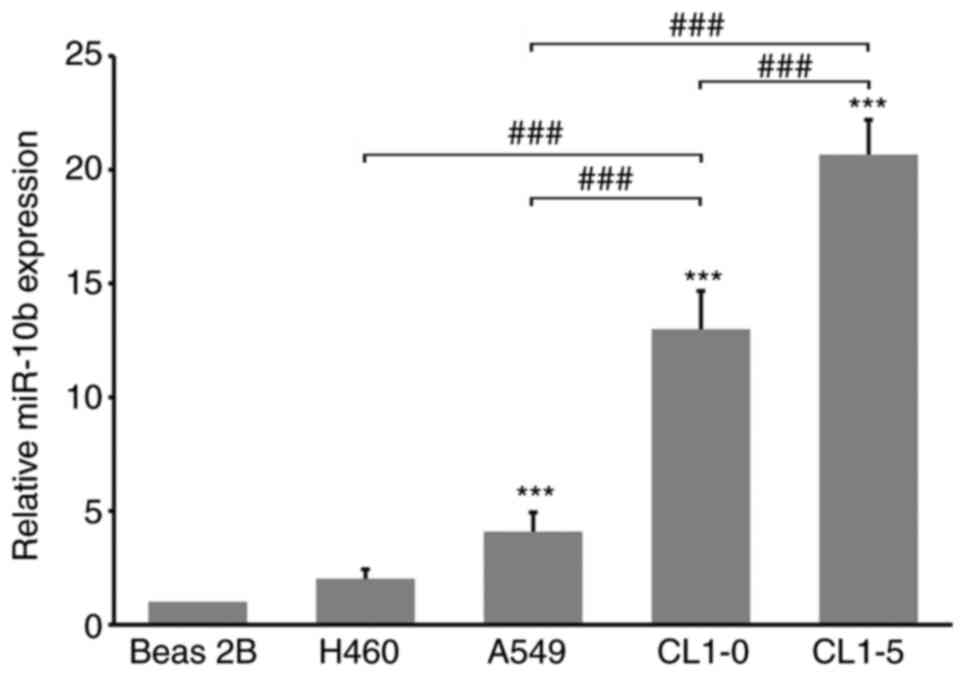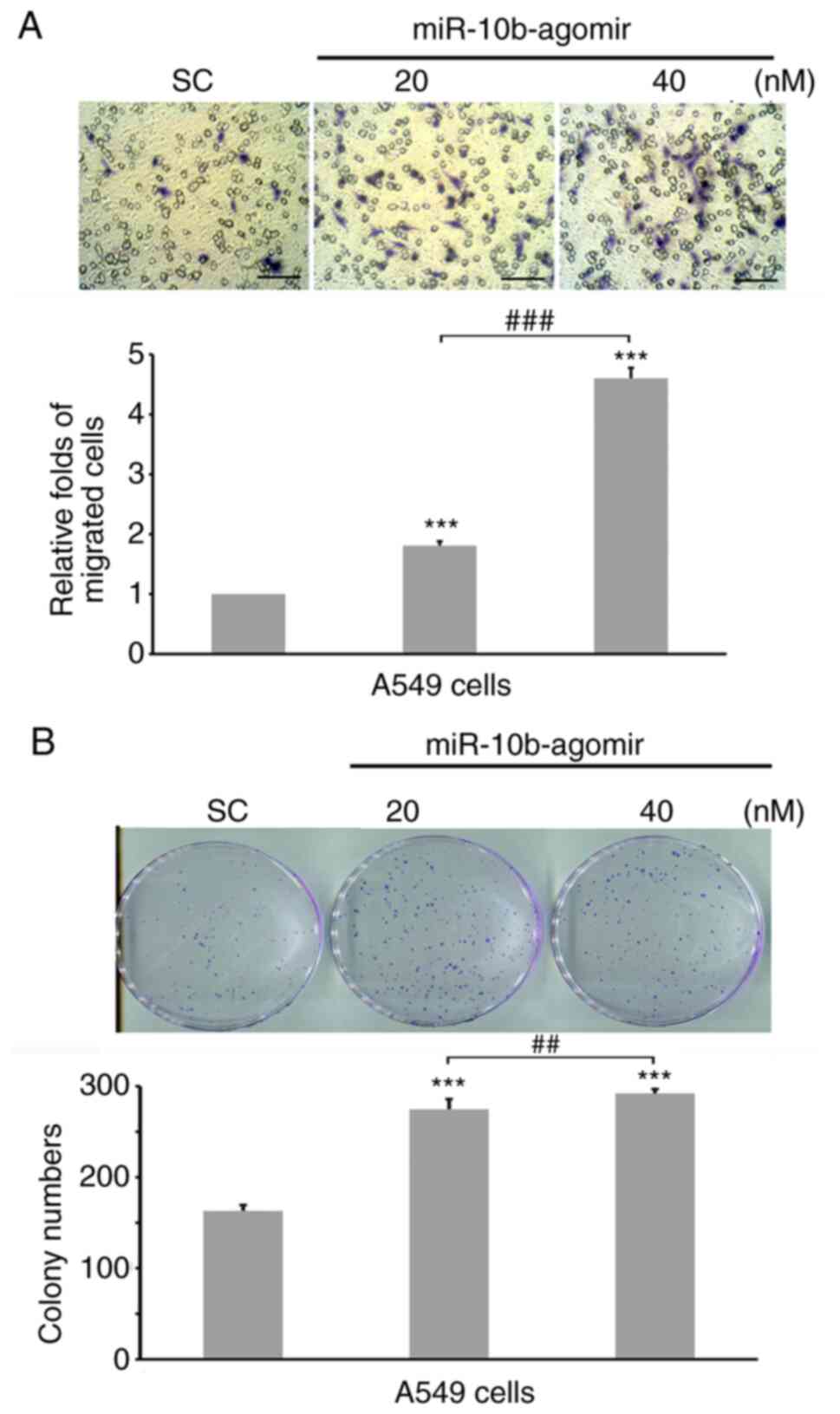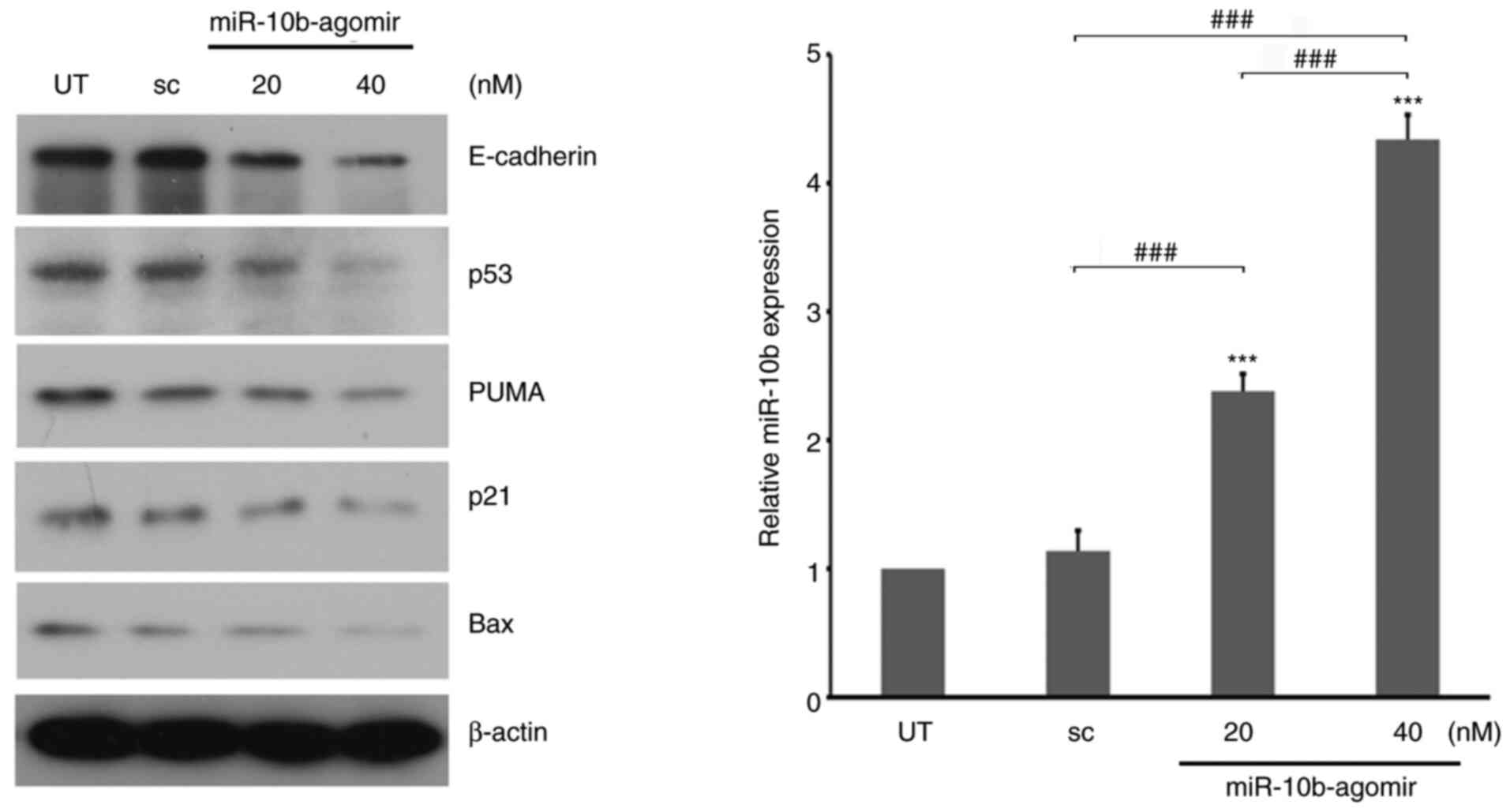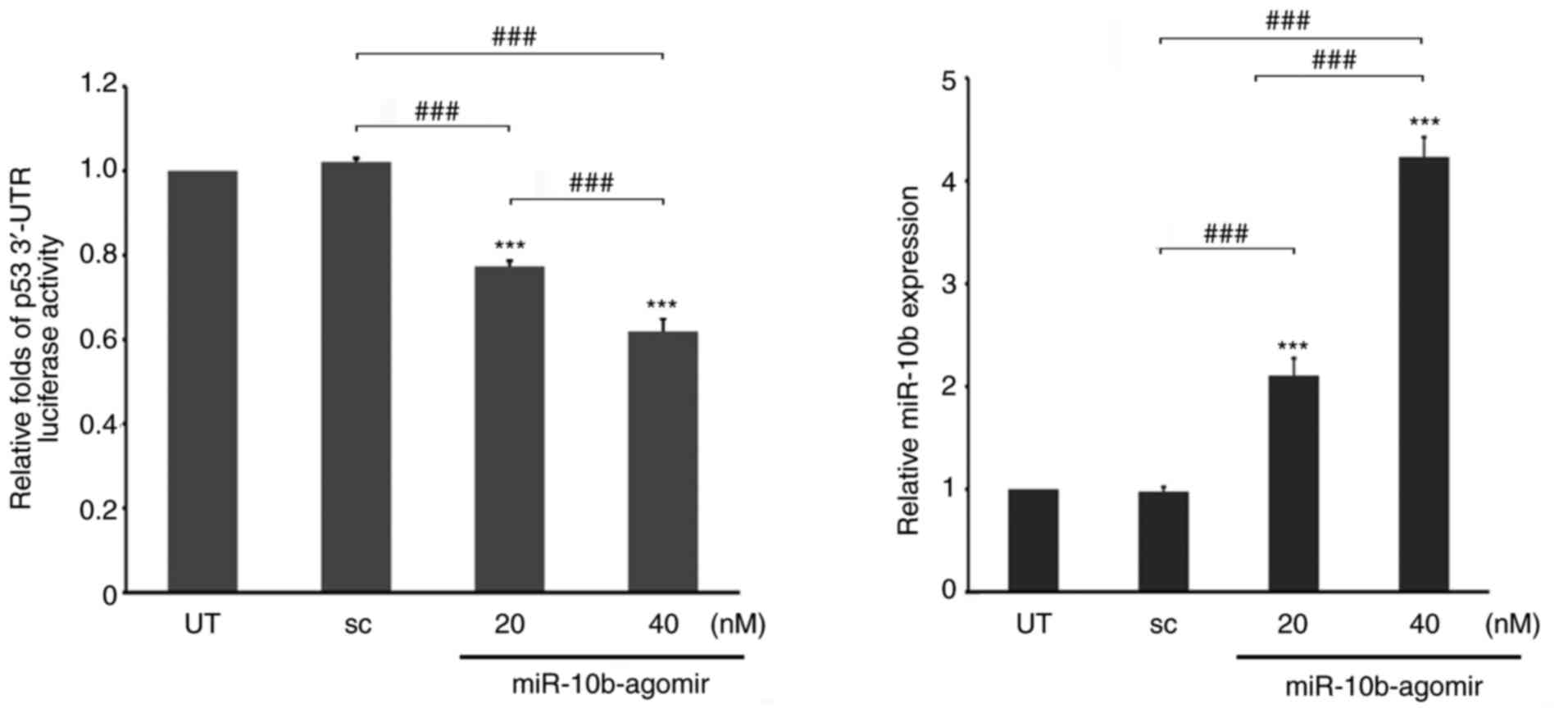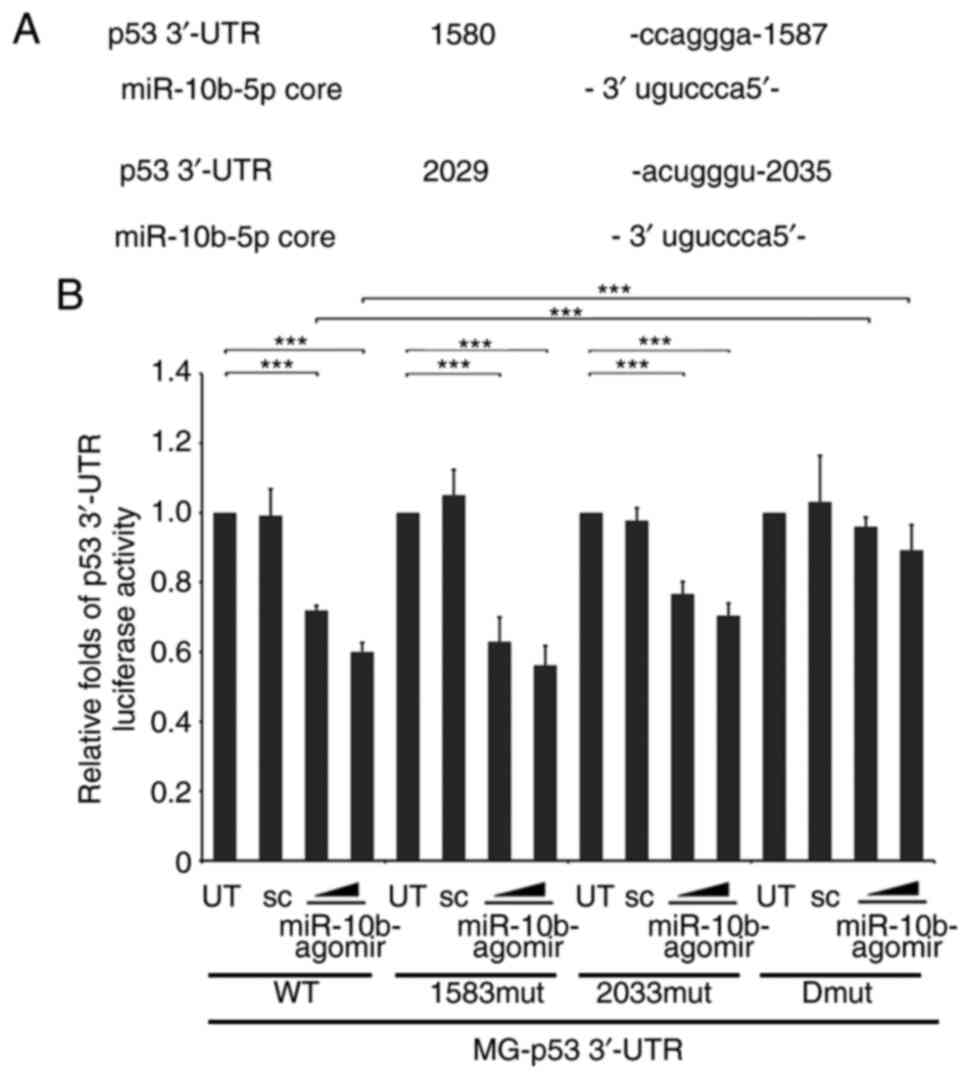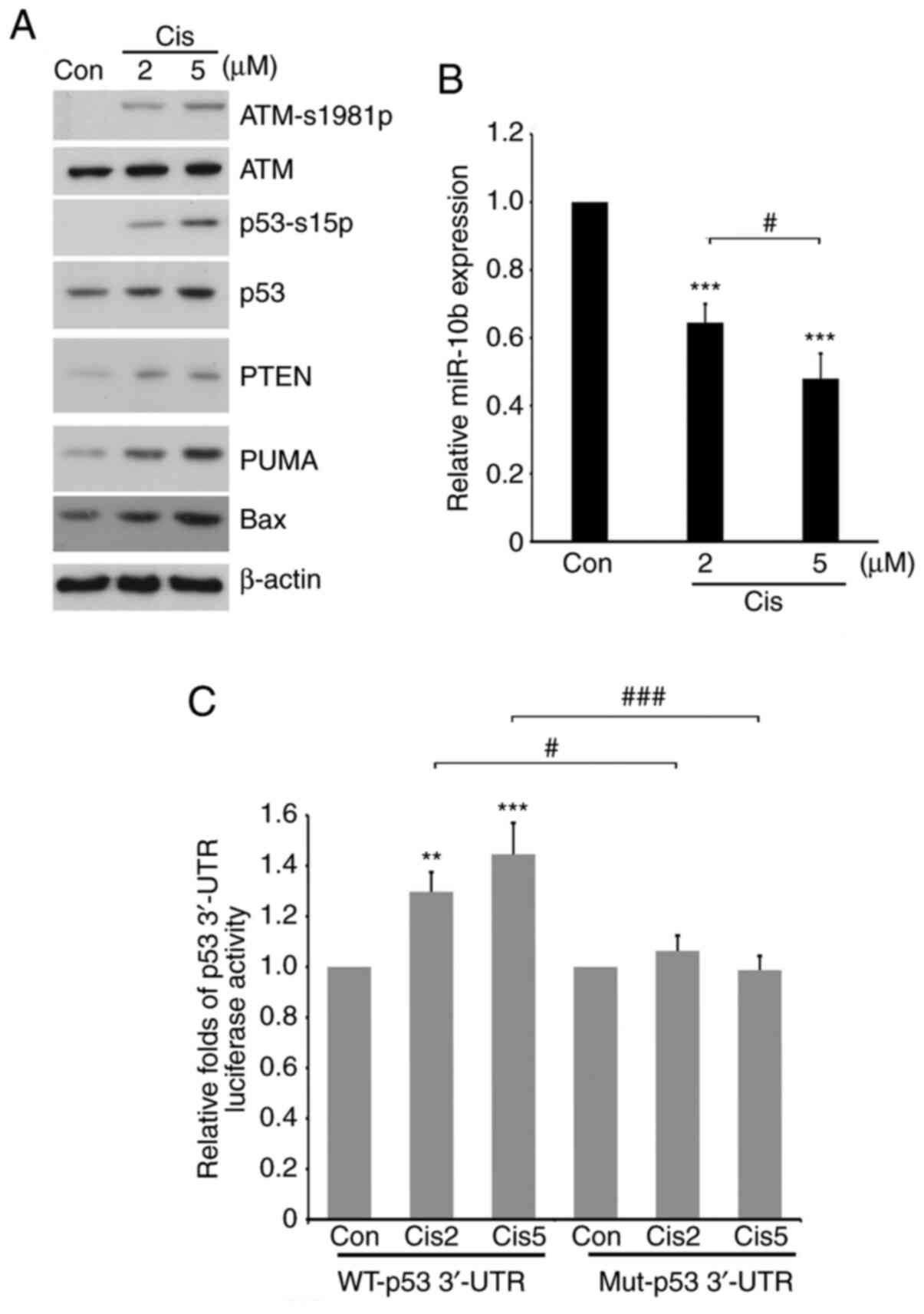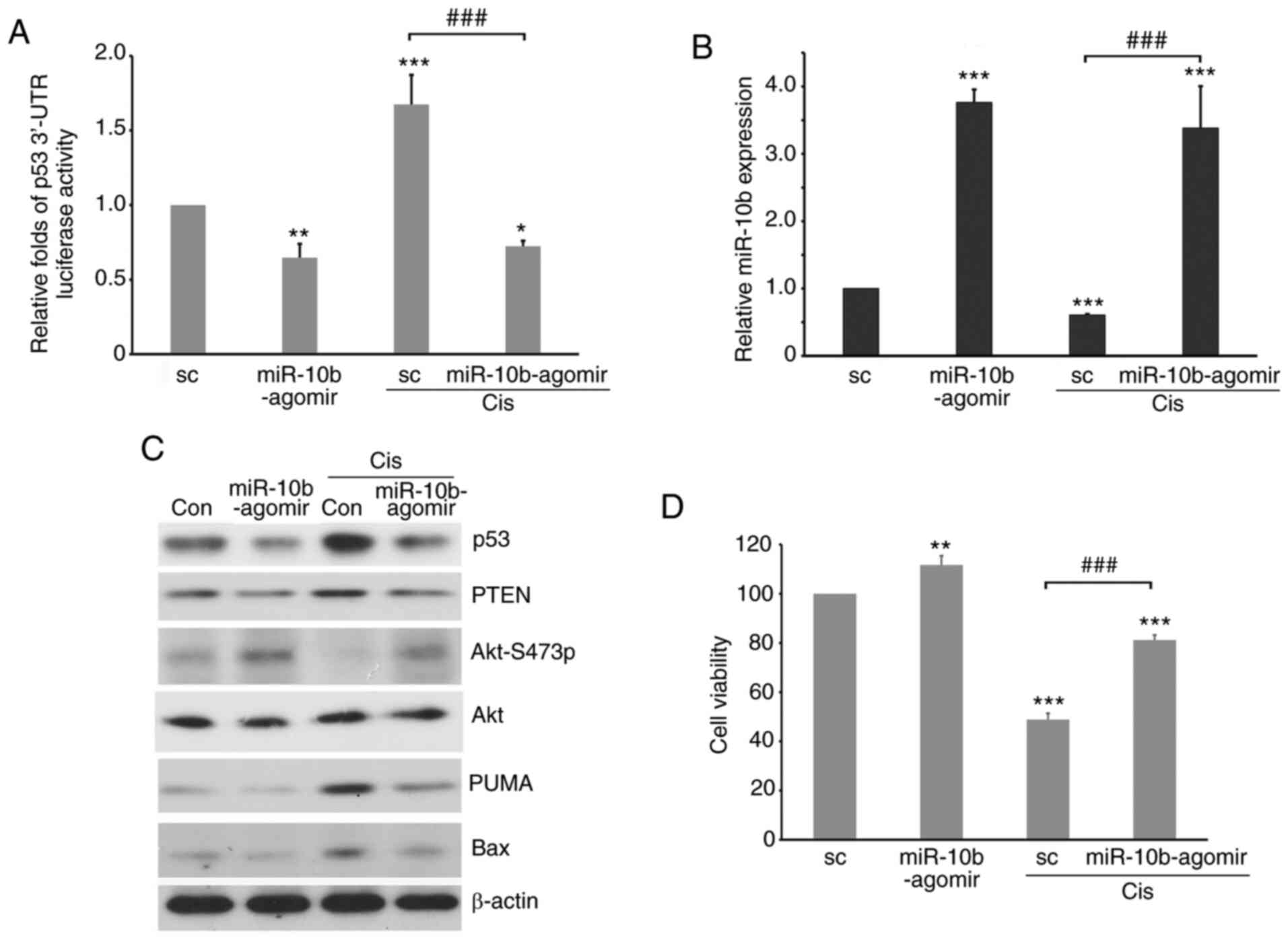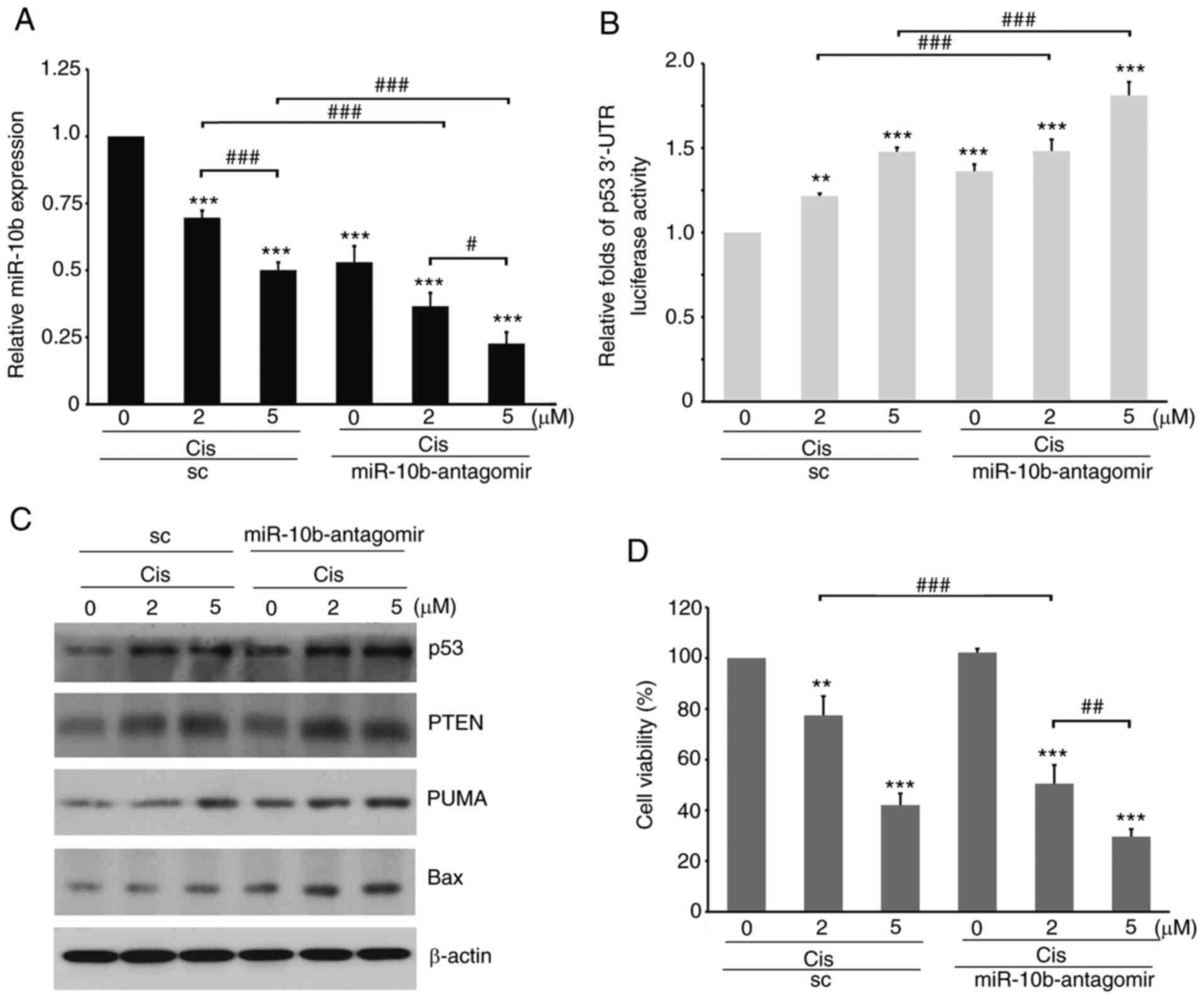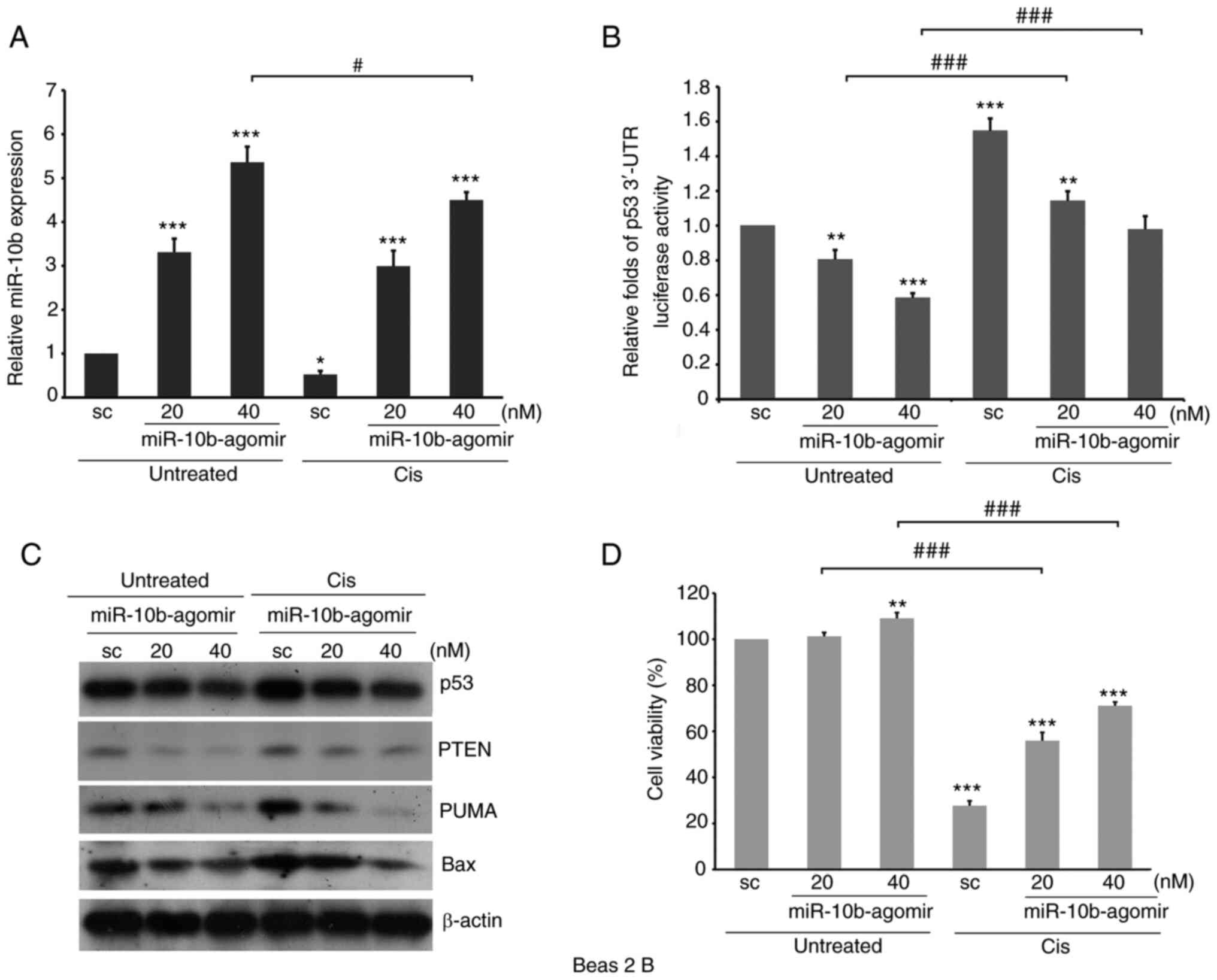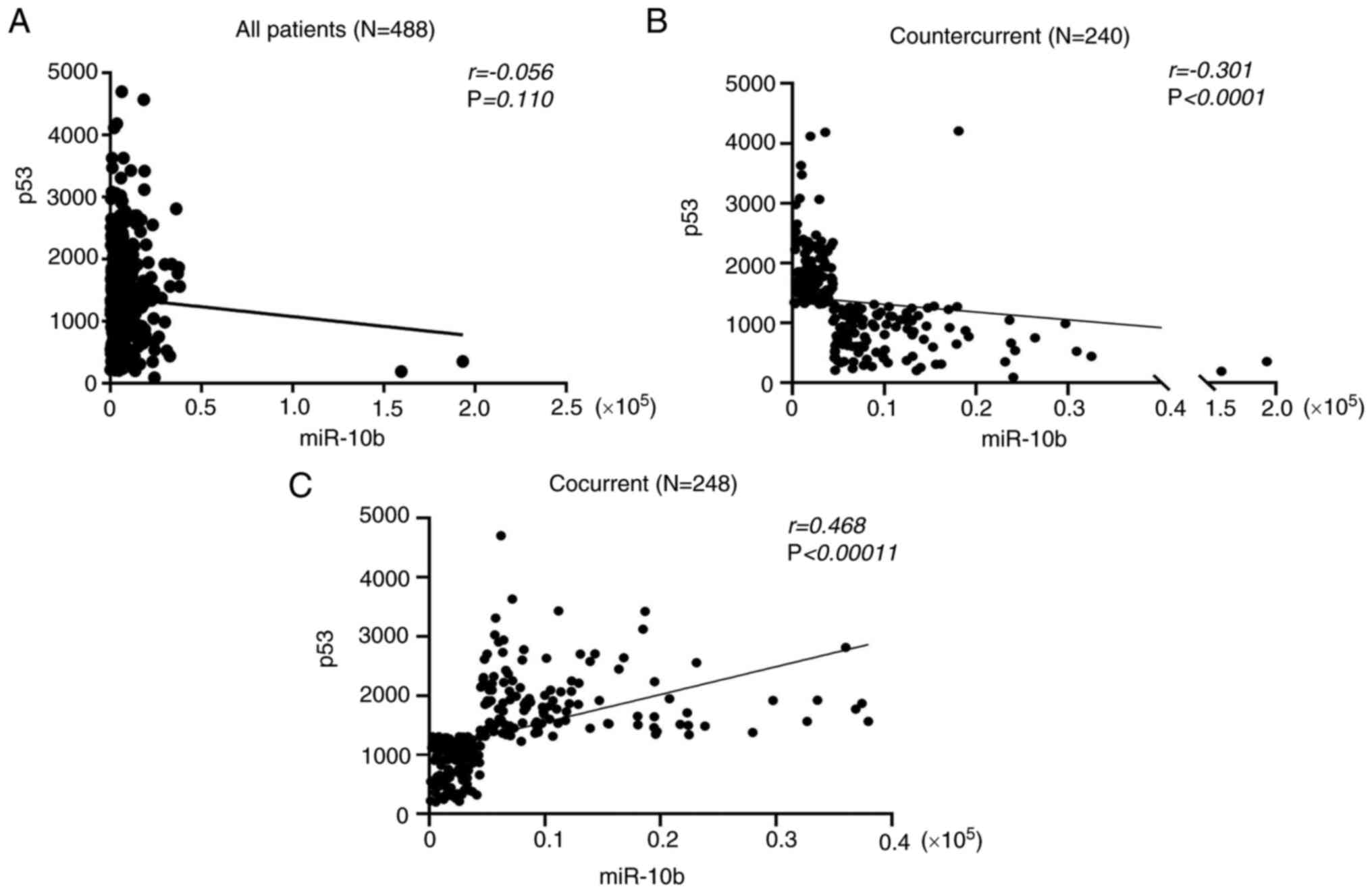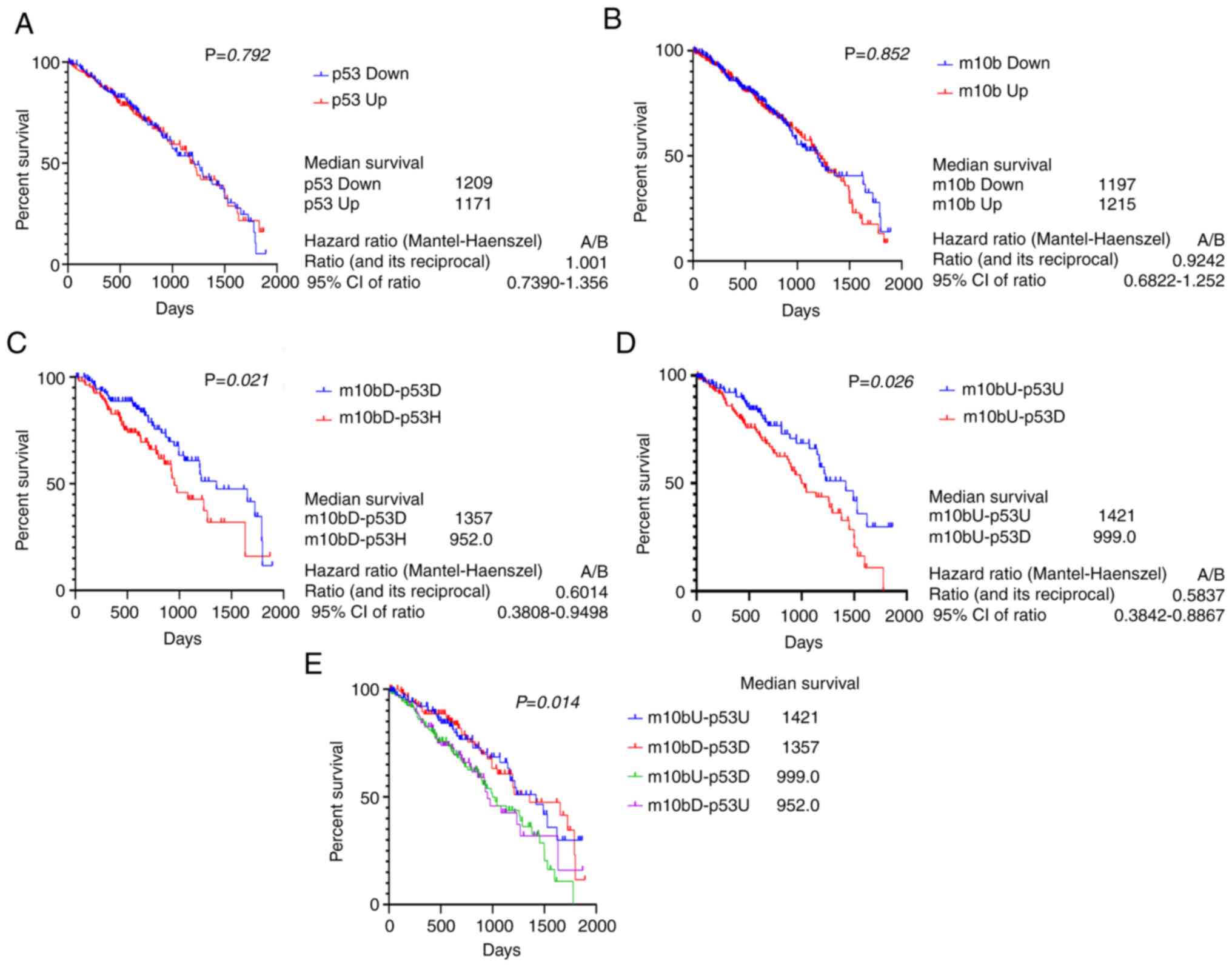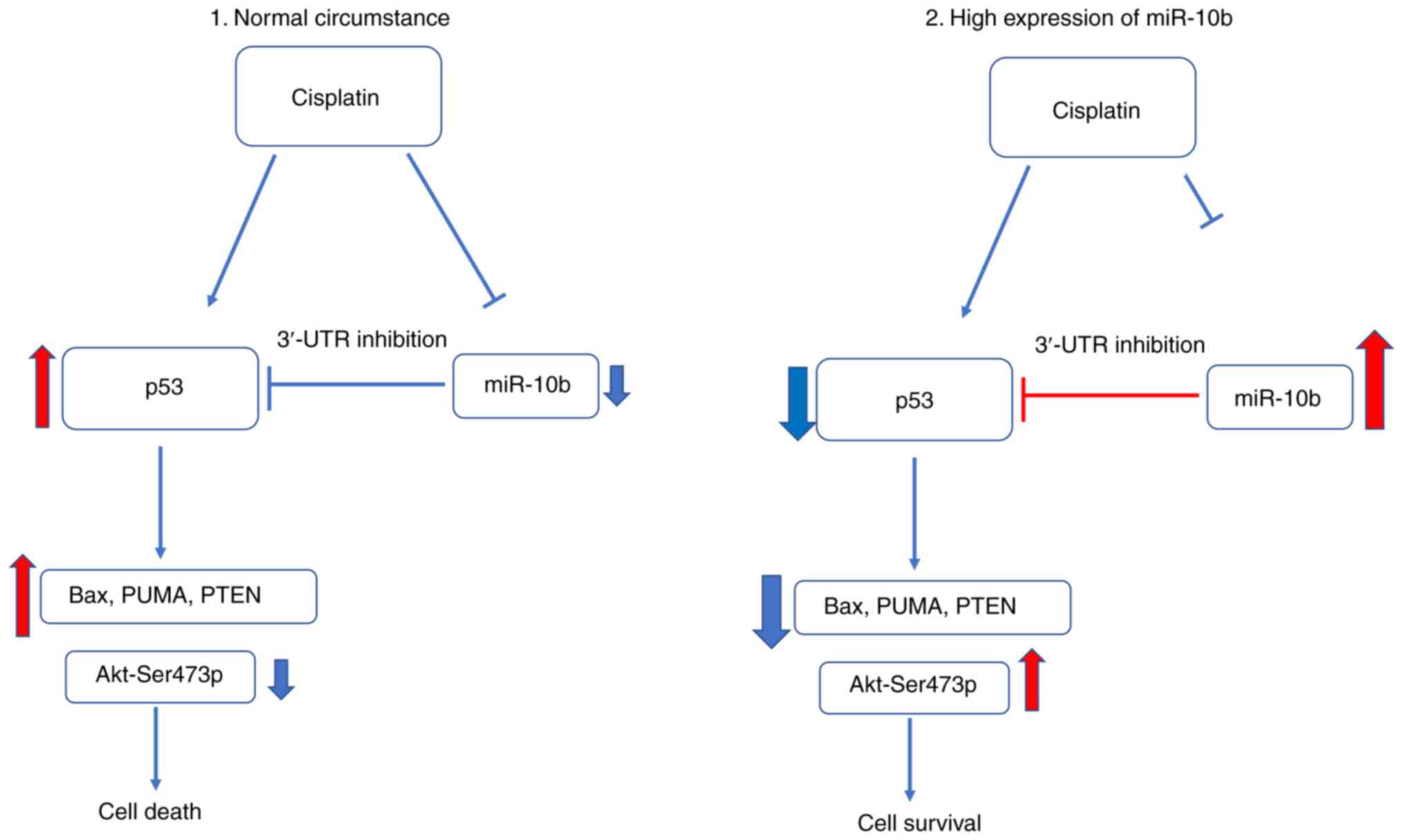|
1
|
Bach PB, Mirkin JN, Oliver TK, Azzoli CG,
Berry DA, Brawley OW, Byers T, Colditz GA, Gould MK, Jett JR, et
al: Benefits and harms of CT screening for lung cancer: A
systematic review. JAMA. 307:2418–2429. 2012. View Article : Google Scholar : PubMed/NCBI
|
|
2
|
Brenner DR, McLaughlin JR and Hung RJ:
Previous lung diseases and lung cancer risk: A systematic review
and meta-analysis. PLoS One. 6:e174792011. View Article : Google Scholar : PubMed/NCBI
|
|
3
|
Hutchinson L: Practical assay to predict
survival. Nat Rev Clin Oncol. 9:1272012. View Article : Google Scholar : PubMed/NCBI
|
|
4
|
Ranpura V, Hapani S and Wu S:
Treatment-related mortality with bevacizumab in cancer patients: A
meta-analysis. JAMA. 305:487–494. 2011. View Article : Google Scholar : PubMed/NCBI
|
|
5
|
Seton-Rogers S: Metastasis: Opposing
forces in invasion. Nat Rev Cancer. 11:624–625. 2011. View Article : Google Scholar : PubMed/NCBI
|
|
6
|
Bray F, Ferlay J, Soerjomataram I, Siegel
R, Torre L and Jemal A: Global cancer statistics 2018: GLOBOCAN
estimates of incidence and mortality worldwide for 36 cancers in
185 countries. CA Cancer J Clin. 68:394–424. 2020. View Article : Google Scholar : PubMed/NCBI
|
|
7
|
Holohan C, Van Schaeybroeck S, Longley DB
and Johnston PG: Cancer drug resistance: An evolving paradigm. Nat
Rev Cancer. 13:714–726. 2013. View
Article : Google Scholar : PubMed/NCBI
|
|
8
|
Camidge DR, Pao W and Sequist LV: Acquired
resistance to TKIs in solid tumours: Learning from lung cancer. Nat
Rev Clin Oncol. 11:473–481. 2014. View Article : Google Scholar : PubMed/NCBI
|
|
9
|
Wang H, Zhang G, Zhang H, Zhang F, Zhou B,
Ning F, Wang HS, Cai SH and Du J: Acquisition of
epithelial-mesenchymal transition phenotype and cancer stem
cell-like properties in cisplatin-resistant lung cancer cells
through AKT/β-catenin/Snail signaling pathway. Eur J Pharmacol.
723:156–166. 2014. View Article : Google Scholar : PubMed/NCBI
|
|
10
|
Arumugam T, Ramachandran V, Fournier KF,
Wang H, Marquis L, Abbruzzese JL, Gallick GE, Logsdon CD, McConkey
DJ and Choi W: Epithelial to mesenchymal transition contributes to
drug resistance in pancreatic cancer. Cancer Res. 69:5820–5828.
2009. View Article : Google Scholar : PubMed/NCBI
|
|
11
|
Toledo F and Wahl GM: Regulating the p53
pathway: In vitro hypotheses, in vivo veritas. Nat Rev Cancer.
6:909–913. 2006. View
Article : Google Scholar : PubMed/NCBI
|
|
12
|
Koumenis C, Alarcon R, Hammond E, Sutphin
P, Hoffman W, Murphy M, Derr J, Taya Y, Lowe SW, Kastan M and
Giaccia A: Regulation of p53 by hypoxia: Dissociation of
transcriptional repression and apoptosis from p53-dependent
transactivation. Mol Cell Biol. 21:1297–1310. 2001. View Article : Google Scholar : PubMed/NCBI
|
|
13
|
Lakin N and Jackson S: Regulation of p53
in response to DNA damage. Oncogene. 18:7644–7655. 1999. View Article : Google Scholar : PubMed/NCBI
|
|
14
|
Ravi R, Mookerjee B, Bhujwalla ZM, Sutter
CH, Artemov D, Zeng Q, Dillehay LE, Madan A, Semenza GL and Bedi A:
Regulation of tumor angiogenesis by p53-induced degradation of
hypoxia-inducible factor 1alpha. Genes Dev. 14:34–44.
2000.PubMed/NCBI
|
|
15
|
Wang X, Huang G, Mei S, Qian J, Ji J and
Zhang J: Over-expression of C/EBP-alpha induces apoptosis in
cultured rat hepatic stellate cells depending on p53 and peroxisome
proliferator-activated receptor-gamma. Biochem Biophys Res Commun.
380:286–291. 2009. View Article : Google Scholar : PubMed/NCBI
|
|
16
|
Vilborg A, Glahder JA, Wilhelm MT, Bersani
C, Corcoran M, Mahmoudi S, Rosenstierne M, Grandér D, Farnebo M,
Norrild B and Wiman KG: The p53 target Wig-1 regulates p53 mRNA
stability through an AU-rich element. Proc Natl Acad Sci USA.
106:15756–15761. 2009. View Article : Google Scholar : PubMed/NCBI
|
|
17
|
Vousden KH and Prives C: Blinded by the
light: The growing complexity of p53. Cell. 137:413–431. 2009.
View Article : Google Scholar : PubMed/NCBI
|
|
18
|
Soussi T and Beroud C: Assessing TP53
status in human tumours to evaluate clinical outcome. Nat Rev
Cancer. 1:233–240. 2001. View Article : Google Scholar : PubMed/NCBI
|
|
19
|
Brown JM and Attardi LD: The role of
apoptosis in cancer development and treatment response. Nat Rev
Cancer. 5:231–237. 2005. View Article : Google Scholar : PubMed/NCBI
|
|
20
|
Hwang CI, Matoso A, Corney DC,
Flesken-Nikitin A, Körner S, Wang W, Boccaccio C, Thorgeirsson SS,
Comoglio PM, Hermeking H and Nikitin AY: Wild-type p53 controls
cell motility and invasion by dual regulation of MET expression.
Proc Natl Acad Sci USA. 108:14240–14245. 2011. View Article : Google Scholar : PubMed/NCBI
|
|
21
|
Wang SP, Wang WL, Chang YL, Wu CT, Chao
YC, Kao SH, Yuan A, Lin CW, Yang SC, Chan WK, et al: p53 controls
cancer cell invasion by inducing the MDM2-mediated degradation of
Slug. Nat Cell Biol. 11:694–704. 2009. View Article : Google Scholar : PubMed/NCBI
|
|
22
|
Gibbons DL, Byers LA and Kurie JM:
Smoking, p53 mutation, and lung cancer. Mol Cancer Res. 12:3–13.
2014. View Article : Google Scholar : PubMed/NCBI
|
|
23
|
Cuperus JT, Fahlgren N and Carrington JC:
Evolution and functional diversification of MIRNA genes. The Plant
Cell. 23:431–442. 2011. View Article : Google Scholar : PubMed/NCBI
|
|
24
|
Bartel DP: MicroRNAs: Target recognition
and regulatory functions. Cell. 136:215–233. 2009. View Article : Google Scholar : PubMed/NCBI
|
|
25
|
Li Y and Kowdley KV: MicroRNAs in common
human diseases. Genomics Proteomics Bioinformatics. 10:246–253.
2012. View Article : Google Scholar : PubMed/NCBI
|
|
26
|
Lange A, Prenzler A, Frank M, Golpon H,
Welte T and von der Schulenburg JM: A systematic review of the
cost-effectiveness of targeted therapies for metastatic non-small
cell lung cancer (NSCLC). BMC Pulm Med. 14:1922014. View Article : Google Scholar : PubMed/NCBI
|
|
27
|
Durrant DE and Morrison DK: Targeting the
Raf kinases in human cancer: The Raf dimer dilemma. Br J Cancer.
118:3–8. 2018. View Article : Google Scholar : PubMed/NCBI
|
|
28
|
Bouchie A: First microRNA mimic enters
clinic. Nat Biotechnol. 31:5772013. View Article : Google Scholar : PubMed/NCBI
|
|
29
|
Iorio MV and Croce CM: MicroRNA
dysregulation in cancer: Diagnostics, monitoring and therapeutics.
A comprehensive review. EMBO Mol Med. 4:143–159. 2012. View Article : Google Scholar : PubMed/NCBI
|
|
30
|
Raza U, Zhang JD and Şahin Ö: MicroRNAs:
Master regulators of drug resistance, stemness, and metastasis. J
Mol Med. 92:321–336. 2014. View Article : Google Scholar : PubMed/NCBI
|
|
31
|
Lu Y, Yao J, Yu J, Wei Q and Cao X: The
association between abnormal microRNA-10b expression and cancer
risk: A meta-analysis. Sci Rep. 4:74982014. View Article : Google Scholar : PubMed/NCBI
|
|
32
|
Ma Z, Chen Y, Min L, Li L, Huang H, Li J,
Yan Q, Song P, Dai L and Yao X: Augmented miR-10b expression
associated with depressed expression of its target gene KLF4
involved in gastric carcinoma. Int J Clin Exp Pathol. 8:5071–5079.
2015.PubMed/NCBI
|
|
33
|
Ma L, Teruya-Feldstein J and Weinberg RA:
Tumour invasion and metastasis initiated by microRNA-10b in breast
cancer. Nature. 449:682–688. 2007. View Article : Google Scholar : PubMed/NCBI
|
|
34
|
Guo Y, Lang X, Lu Z, Wang J, Li T, Liao Y,
Jia C, Zhao W and Fang H: MiR-10b directly targets ZEB1 and PIK3CA
to curb adenomyotic epithelial cell invasiveness via upregulation
of E-cadherin and inhibition of Akt phosphorylation. Cell Physiol
Biochem. 35:2169–2180. 2015. View Article : Google Scholar : PubMed/NCBI
|
|
35
|
Zhang J, Xu L, Yang Z, Lu H, Hu D, Li W,
Zhang Z, Liu B and Ma S: MicroRNA-10b indicates a poor prognosis of
non-small cell lung cancer and targets E-cadherin. Clin Transl
Oncol. 17:209–214. 2015. View Article : Google Scholar : PubMed/NCBI
|
|
36
|
Moriarty CH, Pursell B and Mercurio AM:
miR-10b targets Tiam1 implications for Rac activation and carcinoma
migration. J Biol Chemistry. 285:20541–20546. 2010. View Article : Google Scholar : PubMed/NCBI
|
|
37
|
Ahmad A, Ginnebaugh KR, Yin S,
Bollig-Fischer A, Reddy KB and Sarkar FH: Functional role of
miR-10b in tamoxifen resistance of ER-positive breast cancer cells
through down-regulation of HDAC4. BMC Cancer. 15:5402015.
View Article : Google Scholar : PubMed/NCBI
|
|
38
|
Nishida N, Yamashita S, Mimori K, Sudo T,
Tanaka F, Shibata K, Yamamoto H, Ishii H, Doki Y and Mori M:
MicroRNA-10b is a prognostic indicator in colorectal cancer and
confers resistance to the chemotherapeutic agent 5-fluorouracil in
colorectal cancer cells. Ann Surg Oncol. 19:3065–3071. 2012.
View Article : Google Scholar : PubMed/NCBI
|
|
39
|
Wu K, Hu Y, Yan K, Qi Y, Zhang C, Zhu D,
Liu D and Zhao S: microRNA-10b confers cisplatin resistance by
activating AKT/mTOR/P70S6K signaling via targeting PPARγ in
esophageal cancer. J Cell Physiol. 235:1247–1258. 2020. View Article : Google Scholar : PubMed/NCBI
|
|
40
|
Setoyama T, Zhang X, Natsugoe S and Calin
GA: microRNA-10b: A new marker or the marker of pancreatic ductal
adenocarcinoma? Clin Cancer Res. 17:5527–5529. 2011. View Article : Google Scholar : PubMed/NCBI
|
|
41
|
Huang J, Sun C, Wang S, He Q and Li D:
MicroRNA miR-10b inhibition reduces cell proliferation and promotes
apoptosis in non-small cell lung cancer (NSCLC) cells. Mol Biosyst.
11:2051–2059. 2015. View Article : Google Scholar : PubMed/NCBI
|
|
42
|
Fang CY, Yu CC, Liao YW, Hsieh PL, Ohiro
Y, Chu PM, Huang YC, Yu CH and Tsai LL: miR-10b regulated by Twist
maintains myofibroblasts activities in oral submucous fibrosis. J
Formos Med Assoc. 119:1167–1173. 2020. View Article : Google Scholar : PubMed/NCBI
|
|
43
|
Tsukerman P, Stern-Ginossar N, Gur C,
Glasner A, Nachmani D, Bauman Y, Yamin R, Vitenshtein A, Stanietsky
N, Bar-Mag T, et al: MiR-10b downregulates the stress-induced cell
surface molecule MICB, a critical ligand for cancer cell
recognition by natural killer cells. Cancer Res. 72:5463–5472.
2012. View Article : Google Scholar : PubMed/NCBI
|
|
44
|
Wang L, Liu W, Zhang Y, Hu Z, Guo H, Lv J
and Du H: Dexmedetomidine had neuroprotective effects on
hippocampal neuronal cells via targeting lncRNA SHNG16 mediated
microRNA-10b-5p/BDNF axis. Mol Cell Biochem. 469:41–51. 2020.
View Article : Google Scholar : PubMed/NCBI
|
|
45
|
Yu X, Li Z, Chen G and Wu WK: MicroRNA-10b
induces vascular muscle cell proliferation through Akt pathway by
targeting TIP30. Curr Vasc Pharmacol. 13:679–686. 2015. View Article : Google Scholar : PubMed/NCBI
|
|
46
|
Lin CC, Yang TY, Lu HJ, Wan CK, Hsu SL and
Wu CC: Attenuating role of withaferin A in the proliferation and
migration of lung cancer cells via a p53-miR-27a/miR-10b pathway.
Oncol Lett. 21:2322021. View Article : Google Scholar : PubMed/NCBI
|
|
47
|
Livak KJ and Schmittgen TD: Analysis of
relative gene expression data using real-time quantitative PCR and
the 2(-Delta Delta C(T)) method. Methods. 25:402–408. 2001.
View Article : Google Scholar : PubMed/NCBI
|
|
48
|
Falasca M, Raimondi C and Maffucci T:
Boyden chamber. Cell Migration Springer. 87–95. 2011. View Article : Google Scholar
|
|
49
|
Yang TY, Teng CLJ, Lin TCC, Chen KC, Hsu
SL and Wu CC: Transcriptional repression of Aurora-A gene by
wild-type p53 through directly binding to its promoter with histone
deacetylase 1 and mSin3a. Int J Cancer. 142:92–108. 2018.
View Article : Google Scholar : PubMed/NCBI
|
|
50
|
Anaya J: OncoLnc: Linking TCGA survival
data to mRNAs, miRNAs, and lncRNAs. PeerJ Computer Sci. 2:e672016.
View Article : Google Scholar
|
|
51
|
Mavrevski R, Traykov M, Trenchev I and
Trencheva M: Approaches to modeling of biological experimental data
with GraphPad Prism software. WSEAS Transactions Systems Control.
13:242–247. 2018.
|
|
52
|
Lund AH: miR-10 in development and cancer.
Cell Death Differ. 17:209–214. 2010. View Article : Google Scholar : PubMed/NCBI
|
|
53
|
Liao CG, Kong LM, Zhou P, Yang XL, Huang
JG, Zhang HL and Lu N: miR-10b is overexpressed in hepatocellular
carcinoma and promotes cell proliferation, migration and invasion
through RhoC, uPAR and MMPs. J Transl Med. 12:2342014. View Article : Google Scholar : PubMed/NCBI
|
|
54
|
Wang Y, Li Z, Zhao X, Zuo X and Peng Z:
miR-10b promotes invasion by targeting HOXD10 in colorectal cancer.
Oncol Lett. 12:488–494. 2016. View Article : Google Scholar : PubMed/NCBI
|
|
55
|
Liu Y, Zhao J, Zhang PY, Zhang Y, Sun SY,
Yu SY and Xi QS: MicroRNA-10b targets E-cadherin and modulates
breast cancer metastasis. Med Sci Monit. 18:BR299–BR308. 2012.
View Article : Google Scholar : PubMed/NCBI
|
|
56
|
Lee DH, Kim C, Zhang L and Lee YJ: Role of
p53, PUMA, and Bax in wogonin-induced apoptosis in human cancer
cells. Biochem Pharmacol. 75:2020–2033. 2008. View Article : Google Scholar : PubMed/NCBI
|
|
57
|
Fan S, Smith ML, Rivet DJ II, Duba D, Zhan
Q, Kohn KW, Fornace AJ Jr and O'Connor PM: Disruption of p53
function sensitizes breast cancer MCF-7 cells to cisplatin and
pentoxifylline. Cancer Res. 55:1649–1654. 1995.PubMed/NCBI
|
|
58
|
Vazquez A, Bond EE, Levine AJ and Bond GL:
The genetics of the p53 pathway, apoptosis and cancer therapy. Nat
Rev Drug Discov. 7:979–987. 2008. View Article : Google Scholar : PubMed/NCBI
|
|
59
|
Huang Q, Song Q, Zhong W, Chen Y and Liang
L: MicroRNA-10b and the clinical outcomes of various cancers: A
systematic review and meta-analysis. Clin Chim Acta. 474:14–22.
2017. View Article : Google Scholar : PubMed/NCBI
|
|
60
|
Chen H, Fan Y, Xu W, Chen J, Xu C, Wei X,
Fang D and Feng Y: miR-10b inhibits apoptosis and promotes
proliferation and invasion of endometrial cancer cells via
targeting HOXB3. Cancer Biother Radiopharm. 31:225–231. 2016.
View Article : Google Scholar : PubMed/NCBI
|
|
61
|
Wang S, Wu Y, Xu Y and Tang X: miR-10b
promoted melanoma progression through Wnt/β-catenin pathway by
repressing ITCH expression. Gene. 710:39–47. 2019. View Article : Google Scholar : PubMed/NCBI
|
|
62
|
Han X, Yan S, Weijie Z, Feng W, Liuxing W,
Mengquan L and Qingxia F: Critical role of miR-10b in transforming
growth factor-β1-induced epithelial-mesenchymal transition in
breast cancer. Cancer Gene Ther. 21:60–67. 2014. View Article : Google Scholar : PubMed/NCBI
|
|
63
|
Bourguignon LY: Matrix hyaluronan-CD44
interaction activates microRNA and lncRNA signaling associated with
chemoresistance, invasion, and tumor progression. Front Oncol.
9:4922019. View Article : Google Scholar : PubMed/NCBI
|
|
64
|
El-Deiry WS: The role of p53 in
chemosensitivity and radiosensitivity. Oncogene. 22:7486–7495.
2003. View Article : Google Scholar : PubMed/NCBI
|
|
65
|
Ho J, Ma W, Mao D and Benchimol S:
p53-Dependent transcriptional repression of c-myc is required for
G1 cell cycle arrest. Mol Cell Biol. 25:7423–7431. 2005. View Article : Google Scholar : PubMed/NCBI
|
|
66
|
Lu C, Jiang W, Hui B, Rong D, Fu K, Dong
C, Tang W and Cao H: The circ_0021977/miR-10b-5p/P21 and P53
regulatory axis suppresses proliferation, migration, and invasion
in colorectal cancer. J Cell Physiol. 235:2273–2285. 2020.
View Article : Google Scholar : PubMed/NCBI
|
|
67
|
Sun B, Zhao X, Ming J, Liu X, Liu D and
Jiang C: Stepwise detection and evaluation reveal miR-10b and
miR-222 as a remarkable prognostic pair for glioblastoma. Oncogene.
38:6142–6157. 2019. View Article : Google Scholar : PubMed/NCBI
|
|
68
|
Hu W, Chan CS, Wu R, Zhang C, Sun Y, Song
JS, Tang LH, Levine AJ and Feng Z: Negative regulation of tumor
suppressor p53 by microRNA miR-504. Mol Cell. 38:689–699. 2010.
View Article : Google Scholar : PubMed/NCBI
|
|
69
|
Liu C, Chen Z, Fang J, Xu A, Zhang W and
Wang Z: H19-derived miR-675 contributes to bladder cancer cell
proliferation by regulating p53 activation. Tumor Biol. 37:263–270.
2016. View Article : Google Scholar : PubMed/NCBI
|
|
70
|
Manfè V, Biskup E, Rosbjerg A, Kamstrup M,
Skov AG, Lerche CM, Lauenborg BT, Odum N and Gniadecki R: miR-122
regulates p53/Akt signalling and the chemotherapy-induced apoptosis
in cutaneous T-cell lymphoma. PLoS One. 7:e295412012. View Article : Google Scholar
|
|
71
|
Le MT, Teh C, Shyh-Chang N, Xie H, Zhou B,
Korzh V, Lodish HF and Lim B: MicroRNA-125b is a novel negative
regulator of p53. Genes Dev. 23:862–876. 2009. View Article : Google Scholar : PubMed/NCBI
|
|
72
|
Muller PA and Vousden KH: p53 mutations in
cancer. Nat Cell Biol. 15:2–8. 2013. View Article : Google Scholar : PubMed/NCBI
|
|
73
|
Stiewe T: The p53 family in
differentiation and tumorigenesis. Nat Rev Cancer. 7:165–167. 2007.
View Article : Google Scholar : PubMed/NCBI
|
|
74
|
Bai M, Zhang H, Si L, Yu N, Zeng A and
Zhao R: Upregulation of serum miR-10b is associated with poor
prognosis in patients with melanoma. J Cancer. 8:2487–2491. 2017.
View Article : Google Scholar : PubMed/NCBI
|
|
75
|
Khella HW, Daniel N, Youssef L, Scorilas
A, Nofech-Mozes R, Mirham L, Krylov SN, Liandeau E, Krizova A,
Finelli A, et al: miR-10b is a prognostic marker in clear cell
renal cell carcinoma. J Clin Pathol. 70:854–859. 2017. View Article : Google Scholar : PubMed/NCBI
|
|
76
|
Wang YY, Ye ZY, Zhao ZS, Li L, Wang YX,
Tao HQ, Wang HJ and He XJ: Clinicopathologic significance of
miR-10b expression in gastric carcinoma. Hum Pathol. 44:1278–1285.
2013. View Article : Google Scholar : PubMed/NCBI
|
|
77
|
Wang P, Liang J, Wang Z, Hou H, Shi L and
Zhou Z: The prognostic value of p53 positive in colorectal cancer:
A retrospective cohort study. Tumor Biol.
39:10104283177036512017.PubMed/NCBI
|
|
78
|
Santoro A, Vlachou T, Luzi L, Melloni G,
Mazzarella L, D'Elia E, Aobuli X, Pasi CE, Reavie L, Bonetti P, et
al: p53 loss in breast cancer leads to Myc activation, increased
cell plasticity, and expression of a mitotic signature with
prognostic value. Cell Rep. 26:624–638.e8. 2019. View Article : Google Scholar : PubMed/NCBI
|
|
79
|
Yildirim M, Kaya V, Demirpence O, Gunduz S
and Bozcuk H: Prognostic significance of p53 in gastric cancer: A
meta-analysis. Asian Pac J Cancer Prev. 16:327–332. 2015.
View Article : Google Scholar : PubMed/NCBI
|
|
80
|
Bisio A, De Sanctis V, Del Vescovo V,
Denti MA, Jegga AG, Inga A and Ciribilli Y: Identification of new
p53 target microRNAs by bioinformatics and functional analysis. BMC
Cancer. 13:5522013. View Article : Google Scholar : PubMed/NCBI
|
|
81
|
Tung MC, Lin PL, Wang YC, He TY, Lee MC,
Yeh SD, Chen CY and Lee H: Mutant p53 confers chemoresistance in
non-small cell lung cancer by upregulating Nrf2. Oncotarget.
6:41692–41705. 2015. View Article : Google Scholar : PubMed/NCBI
|















